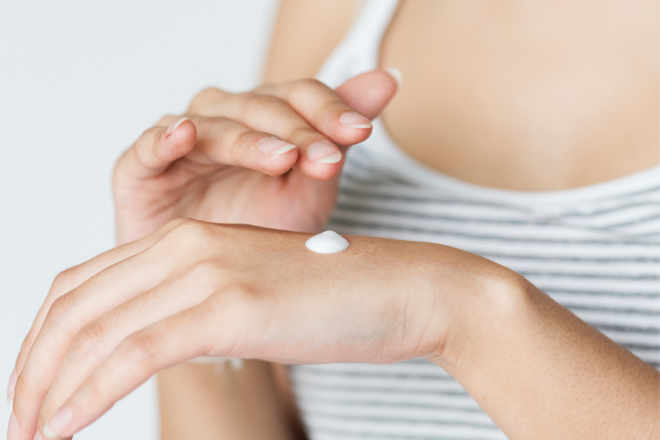Exploring Natural Methods to get rid of Dark Spots
Dark spots, also known as hyperpigmentation, age spots, or melasma, are common skin concerns that affect millions of people worldwide. These discolored patches typically develop due to excess melanin production caused by sun exposure, hormonal changes, acne scarring, or natural aging processes. While dark spots are generally harmless, many individuals seek effective methods to reduce their appearance and achieve a more even skin tone through natural approaches that can be gentler on the skin than harsh chemical treatments.

How to Remove Dark Spots Naturally at Home
Natural dark spot removal methods often focus on ingredients with gentle exfoliating and brightening properties. Vitamin C-rich foods like lemon juice contain natural acids that may help lighten pigmentation when applied topically, though users should exercise caution as citrus can increase photosensitivity. Aloe vera gel contains compounds that may help reduce melanin production while providing soothing hydration to the skin.
Other popular natural remedies include green tea extract, which contains antioxidants that may protect against further damage, and turmeric mixed with milk or honey to create brightening face masks. Apple cider vinegar diluted with water can act as a gentle chemical exfoliant, while potato slices contain vitamin C and starch that some believe may help fade spots over time. However, results from these methods typically require consistent application over several months and may vary significantly between individuals.
Natural Remedies for Dark Spot Removal Using Kitchen Ingredients
Many households contain ingredients that have been traditionally used for skin brightening purposes. Tomatoes contain lycopene and natural acids that may help reduce pigmentation when applied as fresh pulp or juice. Oatmeal combined with buttermilk creates a gentle exfoliating mask that can help remove dead skin cells and potentially improve the appearance of surface-level discoloration.
Honey, particularly raw or Manuka varieties, possesses natural enzymatic properties that may support skin renewal processes. When combined with cinnamon powder, it creates a mixture that some users find helpful for addressing post-acne marks. Papaya contains natural enzymes like papain that may help accelerate skin cell turnover, while yogurt provides lactic acid for gentle exfoliation. These remedies work best when used consistently as part of a broader skincare routine that includes sun protection.
Skincare Products for Dark Spots with Natural Ingredients
Commercial skincare products often incorporate concentrated natural ingredients alongside scientifically proven compounds for dark spot treatment. Products containing vitamin C serums, niacinamide, and alpha hydroxy acids derived from natural sources can provide more predictable results than home remedies. Botanical extracts like kojic acid from fungi, arbutin from bearberry plants, and licorice root extract have shown promise in clinical studies for addressing hyperpigmentation.
Retinol products, while synthetically produced, work by accelerating natural skin cell turnover processes. Sunscreens remain the most crucial product for preventing new dark spots and protecting existing treatments from UV interference. When selecting natural-ingredient products, look for formulations that have undergone stability testing and provide clear concentration information for active ingredients.
Dermatological Treatments for Dark Spots Combined with Natural Care
Professional dermatological treatments often provide faster and more dramatic results than natural methods alone, but can be enhanced with complementary natural care approaches. Chemical peels using glycolic or salicylic acid can be followed up with gentle natural moisturizers like aloe vera or rosehip oil to support healing. Laser treatments and intense pulsed light therapy target pigmentation directly, while natural anti-inflammatory ingredients can help manage post-treatment sensitivity.
Microneedling procedures stimulate natural collagen production and can improve the absorption of topical natural ingredients applied afterward. Professional treatments typically require multiple sessions spaced weeks apart, during which maintaining a natural skincare routine with gentle, non-irritating ingredients becomes particularly important for optimal healing and results.
Lifestyle Tips to Prevent Dark Spots Naturally
Prevention remains the most effective long-term strategy for managing dark spots through natural lifestyle modifications. Daily broad-spectrum sunscreen application with at least SPF 30 protects against UV-induced hyperpigmentation, while wearing wide-brimmed hats and seeking shade during peak sun hours provides additional protection. A diet rich in antioxidants from colorful fruits and vegetables may support overall skin health and provide natural protection against oxidative damage.
Adequate hydration helps maintain healthy skin barrier function, while quality sleep allows for natural skin repair processes to occur optimally. Stress management through meditation, exercise, or other relaxation techniques may help regulate hormones that can trigger pigmentation issues. Avoiding picking at acne or other skin irritations prevents post-inflammatory hyperpigmentation from developing in the first place.
Natural methods for dark spot removal offer gentler alternatives to harsh chemical treatments, though they typically require patience and consistent application to see meaningful results. While home remedies and natural ingredients can provide some improvement, combining these approaches with professional treatments and strong sun protection habits generally yields the most comprehensive results. Individual skin types respond differently to various treatments, making it important to patch-test new ingredients and maintain realistic expectations about timeline and outcomes.
Disclaimer: This article is for informational purposes only and should not be considered medical advice. Please consult a qualified healthcare professional for personalized guidance and treatment.




